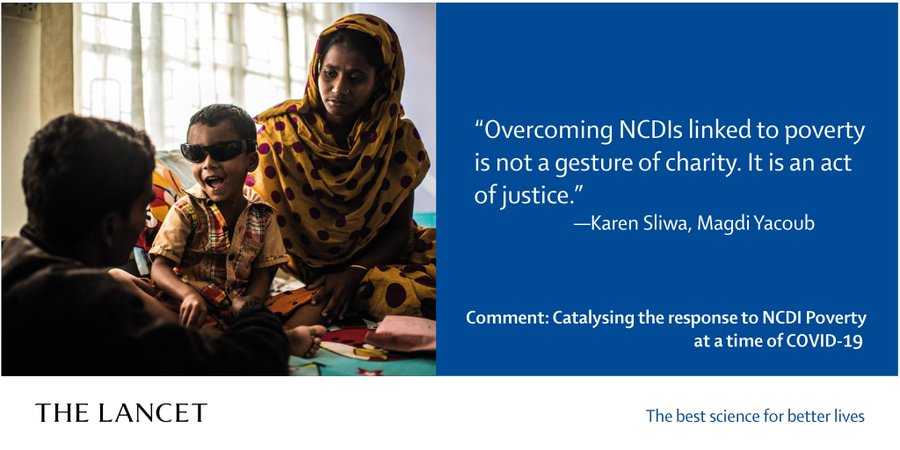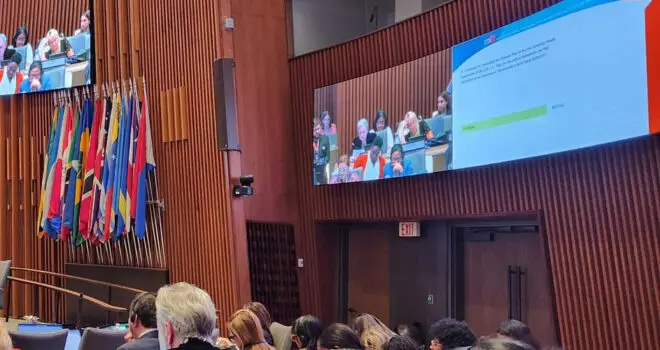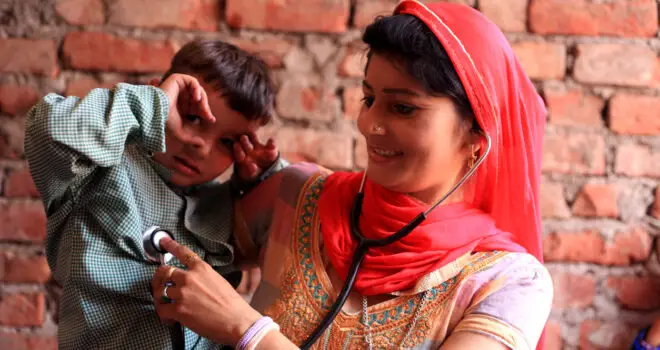Non-communicable diseases & injuries (NCDIs) cause more death and disability at every age among the world’s poorest billion than in wealthy countries, according to the newly published Lancet Commission on NCDs and injuries among the poorest billion, which features WHF Emerging Leaders Ana Mocumbi and Jaime Miranda among its authors.
The Commission argues that the current global NCD agenda does not address the needs, perspectives, and rights of the world’s poor. NCDIs account for more than a third of the disease burden among the poorest billion and are attributable to a far more diverse set of conditions and risk factors than contained in the 5 x 5 model of five diseases (cardiovascular disease, cancer, diabetes, chronic respiratory diseases, and mental ill-health) and five risk factors (tobacco use, unhealthy diets, physical inactivity, harmful use of alcohol, and air pollution).
Among the world’s poorest people, almost 800,000 under age 40 die each year from NCDs and injuries. Between 2011-16, even as NCDs were adopted as priorities in Universal Health Coverage and Sustainable Development Goals agendas, external financing for NCDIs in poorest countries was USD 83 million – only 0.3% of development funds for health.
The Commission outlines how to reverse the neglect of the world’s most marginalised people living with these conditions. It argues that progressive implementation of affordable, cost-effective and equitable interventions could save the lives of 4.6 million people by 2030, including 1.3 million who would otherwise die before the age of 40.
“The Commission’s report provides a much-needed, comprehensive analysis of NCDI Poverty and the achievable key interventions to make a substantial change. It calls on all of us to build global solidarity,” said WHF President Prof Karen Sliwa and Prof Magdi Yacoub in a comment accompanying the report. “Overcoming NCDIs linked to poverty is not a gesture of charity. It is an act of justice.”
The Lancet NCDI Poverty Commission was formed at the end of 2015 in the conviction that non-communicable diseases and injuries are an important, yet an under-recognised and poorly-understood contributor to the death and suffering of this vulnerable population. The aims of the Commission were to rethink global policies, mend a great disparity in health, and broaden the global health agenda in the interest of equity.

Report highlights
- Non-communicable diseases & injuries (NCDI) cause more death & disability at every age among the world’s poorest billion than in wealthy countries.
- Among the world’s poorest people, almost 800,000 under age 40 die each year from NCDs and injuries – that’s more than HIV, TB and maternal deaths combined.
- 6 million lives could be saved by 2030 with affordable, cost-effective and equitable interventions for non-communicable diseases and injuries among the world’s poorest.
- Less than USD 100 million of aid goes to non-communicable diseases and injuries in the countries where the poorest billion lives – that’s 0.3% of development funds for health.


